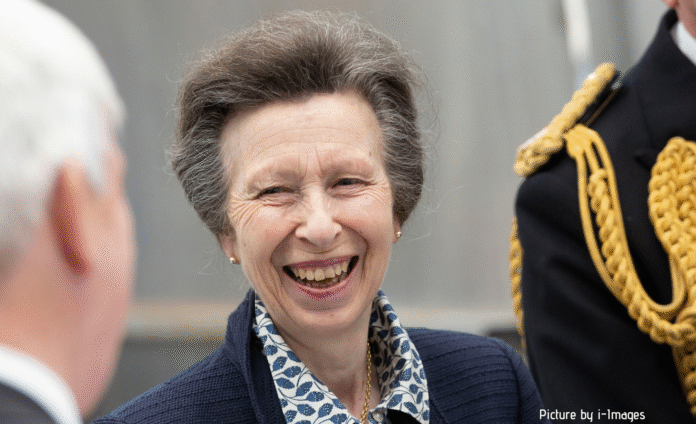In June 1987, Queen Elizabeth II bestowed a highly anticipated honour on her only daughter. It was announced that Anne had been made Princess Royal. The conferral of this very regal title came on June 13 1987 but Anne was actually eligible for it much earlier in her mother’s reign.
Who can be the Princess Royal?
The title of Princess Royal is traditionally given to the eldest daughter of the reigning British monarch. Princess Anne was made Princess Royal in June 1987, just months before her 37th birthday. It was a special honour from Queen Elizabeth II and a recognition of the wide ranging and much admired work carried out by Anne for the Royal Family.

(Royal Family/ Instagram)
The title of Princess Royal came into use in the 17th century. The first woman to hold it was Princess Mary, eldest daughter of the ill fated King Charles I and his wife, Queen Henrietta Maria.
The first Princess Royal – a crucial figure in regal history
Henrietta Maria had been born a Princess of France and the inspiration for the title came from the French court. There, the eldest daughter of a monarch had been known as Madame Royale. In 1642, as the throne of Charles I began to wobble as the Civil War between Royalists and Parliamentarians bubbled into being, the king decided to create a similar sounding title for his eldest daughter. By then, Mary had married into the House of Orange.

(Public Domain, Wiki Commons)
The first Princess Royal, born in 1631, would play a pivotal role in the British Monarchy. Mary’s husband, William II, became the ruling Prince of Orange in 1647 but died just three years later. Eight days after his death, Mary gave birth to their son, also named William. The baby would grow up to become one of the most powerful men in Europe and took the throne of England from his father in law, James II, in 1688.
The title of Princess Royal wouldn’t be used again for almost a century when King George II bestowed it on his daughter, Anne. George was the second king of the House of Hanover and was keen to show his family’s allegiance to British royal traditions after the reign of his father, George I, who had made no secret of his preference for his German homeland.
Princess Royal – a recognition of service
The title has been regularly bestowed since then and it has come to be seen as a way of honouring service to the Monarchy, a tradition exemplified by two other holders, Princess Mary and Princess Charlotte in the past. Their significant contributions to society, particularly in philanthropy, the arts, and education, are remembered with admiration.

Princess Mary, only daughter of King George V, was known for her philanthropic work during World War I, while Princess Charlotte. eldest daughter of King George III, was recognized for her support of the arts and education in the early 19th century.
Princess Anne continues this tradition of service and dedication as the current Princess Royal. Her commitment to various charitable causes and engagements reflects the longstanding tradition of dedication to public service within the British royal family.
The strict rules around the title of Princess Royal
The title of Princess Royal comes with its own rules. As well as only being used for the eldest daughter of a Monarch, the title is held for life.
That means that even when the reign of the Monarch whose daughter has been made Princess Royal comes to an end, the use of the title by their offspring does not.
Princess Anne will hold the title of Princess Royal until her death.

And there is no automatic elevation to Princess Royal. The Monarch must bestow the title on their eldest daughter.
That means the next person eligible to be Princess Royal would be Princess Charlotte when Prince William takes the throne.
However, the title won’t be empty during Princess Anne’s lifetime. And it would be up to a future King William V to decide whether this royal tradition continues.






